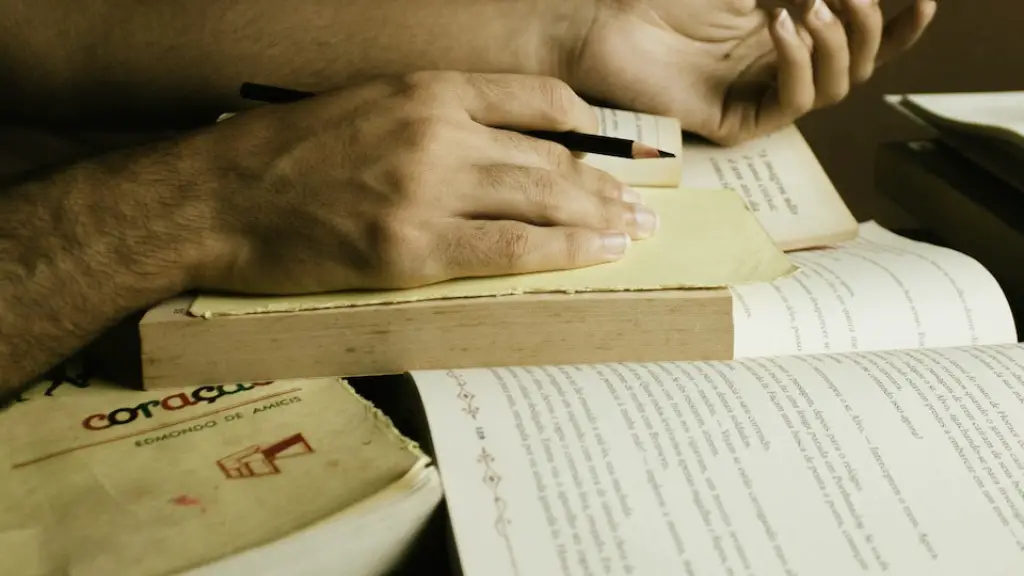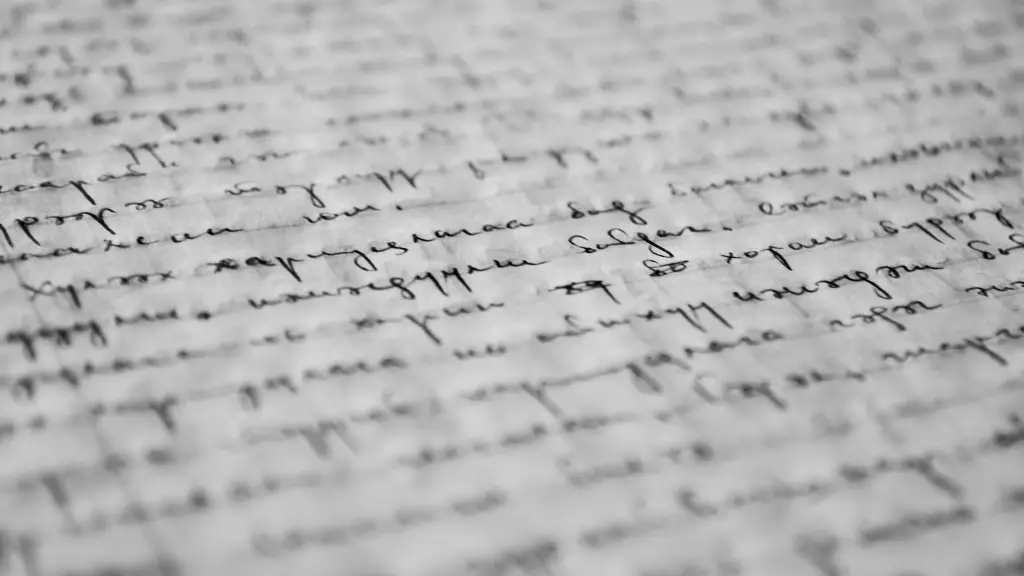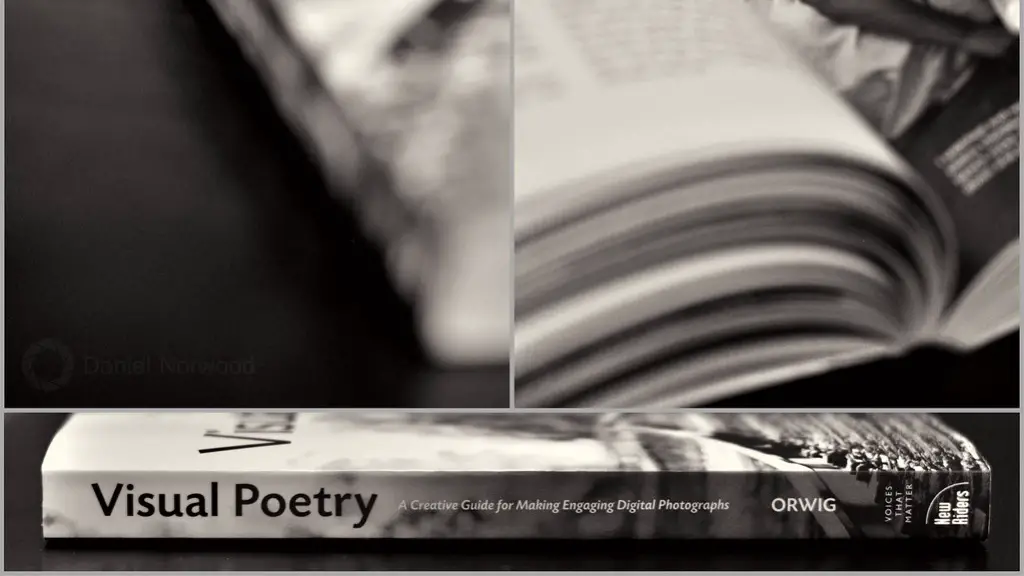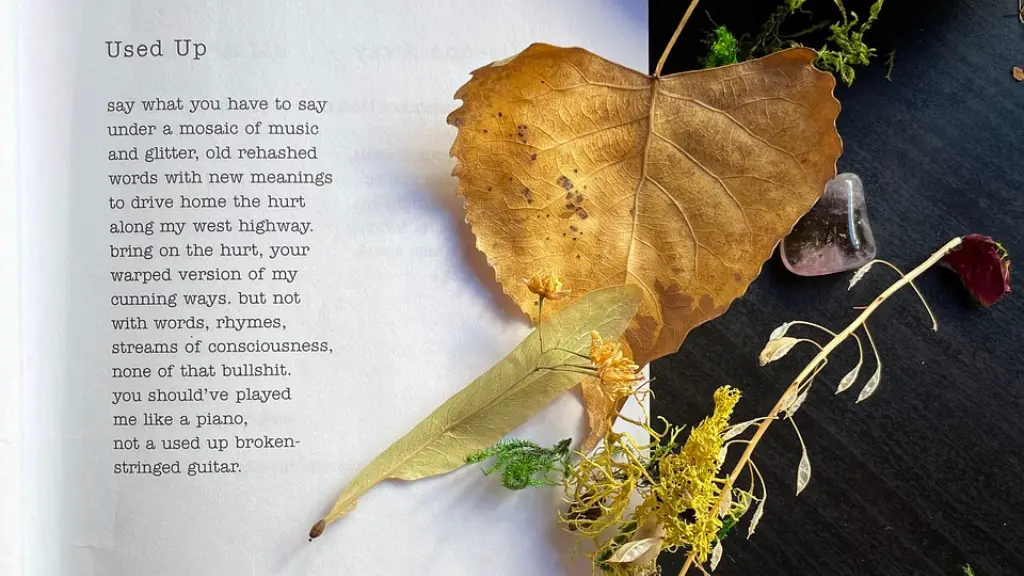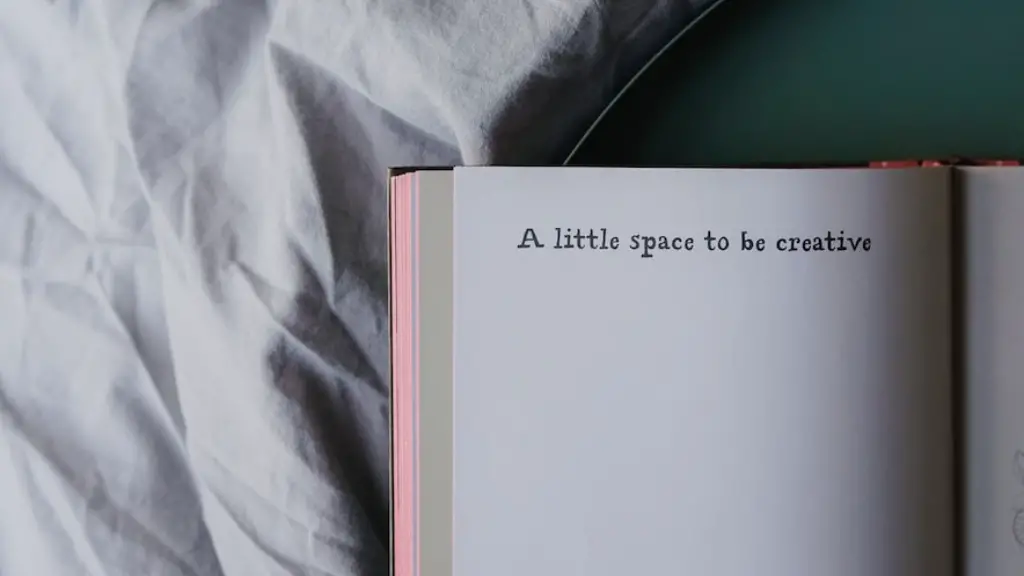Poetry and prose are two different kinds of writing. People often think of them as a single genre, when in fact they are quite different. Poetry is a type of literature that uses language to create visuals, whereas prose is a form of writing in which characters and stories are expressed in a straightforward, direct manner. Both have their advantages and disadvantages, so it’s important to understand the differences between them.
When it comes to poetic language, the aim is to express an idea or emotion without overly relying on literal meanings. By using imagery and metaphors, the poet can evoke feelings and conjure up vivid images in the mind of the reader. On the other hand, prose focuses more on the story, using straightforward language to express ideas and feelings. Through the use of characters and plot, the writer can explore a variety of themes and ideas.
The structure of poetry and prose also differs. Poetry typically relies on a set of rules such as rhyme, meter, and other elements of language to create its structure. Prose tends to be more free-flowing and natural, with less emphasis on a rigid, formulaic structure. This makes it easier for the writer to focus on creating a story that flows logically and has a natural progression of ideas.
The use of language also has its own set of distinctions between poetry and prose. Poetry often uses language that is highly figurative and symbolic, while prose tends to have a more literal meaning. Poets tend to use poetic devices such as similes, metaphors and personification to express their ideas and feelings more vividly, while prose concentrates on more direct and factual language.
Lastly, the way in which the two genres are read is also quite different. While poetic language is often read and re-read in order to fully understand its hidden meanings, prose is often digested in one read. This is due to the fact that prose does not require the same level of analysis as does poetic language.
Historical Context of Poetry and Prose
The history of poetry and prose can be traced back to ancient times. Poetry has existed since the dawn of civilization, with its historic roots stemming from the ancient Mesopotamians, Chinese, and Egyptians. Since then, poetry has evolved in various forms and styles, such as sonnets, odes, epics and narrative poems.
Prose is a much more recent development. It wasn’t until the 15th century that writers began to experiment with narrative forms that are much more characteristic of modern prose. It was during the 18th century that prose literary works began to become the primary form of literature, with the works of notable writers like Jane Austen, Herman Melville and Edgar Allen Poe.
Today, poetry and prose remain extremely popular. Both forms continue to be used in literature, poetry as an art form, and for philosophical and religious contemplation. However, it is important to remember that the distinction between poetry and prose goes beyond mere composition — each form has its own unique strengths and appeals.
How Poetry and Prose Differ
The main difference between poetry and prose lies in its structure. As previously mentioned, poets use images, metaphors, and personification to create visuals, while prose writers use direct, literal language.
Poetry is often written in a certain metre and form, and poets use language that is dissonant to create an emotional effect. Prose, on the other hand, is written in a more logical and linear fashion. While poets rely on imagery and emotion to convey an idea, prose relies more on plot and character development to tell a story.
Poetry often relies on the use of rhyme and metre to convey a message. While this can be a powerful tool when used correctly, it can also limit the poet by reducing the flow of their words and making it difficult for the poet to convey their message. Prose does not have these restrictions as there is no requirement to adhere to a certain metre or rhyme scheme.
In terms of readability, prose tends to be more approachable than poetry. As it does not require much analysis, readers can usually understand the message of a prose piece quite easily, whereas poetry can often require multiple re-reads in order to fully appreciate its hidden meanings.
Advantages and Disadvantages
Poetry and prose both have their own unique advantages and disadvantages. Poetry has the unique ability to evoke strong emotions in readers, due to its reliance on imagery and metaphors. Prose, on the other hand, has the ability to tell a story in a more direct and succinct manner.
However, it’s important to note that the advantages of poetic language can also be its greatest disadvantage. By using such a ‘high level’ of language, poets can often make it difficult for readers to understand the true meaning of their words. Also, due to the rigid structure and metre of poetic language, it can sometimes be difficult for poets to convey their message in a concise and effective manner.
Prose does have some advantages, as it does not require the same level of analysis that poetry does. However, its straightforward nature can also limit its emotional potential. Without the use of metaphors and imagery, prose can sometimes be too direct and lack a certain depth.
Importance of Understanding the Difference
In order to fully understand the differences between poetry and prose, it is important to remember the goals of each form. Poetry relies on the use of imagery and metaphors in order to evoke emotional feelings, while prose tends to be more focused on storytelling.
The structure of each form also has an impact on the way they are used. Poetry often relies on a set of rules such as rhyme and meter, while prose is more free-flowing and natural. It is important to understand the strengths of each form in order to use them effectively.
Lastly, it is important to remember that there is no one ‘right’ way to write. Each form has its own merits, and it is up to the writer to decide which works best for their particular story or idea.
Presence in Modern Society
Today, poetry and prose remain popular forms of literature, despite the advent of newer mediums such as television and film. They continue to be used by writers to express their ideas and feelings, and are commonly used as a way of teaching life lessons to readers. Poetry is still one of the most used forms of expression in the modern age, with poets using their words to spread awareness and create social change.
Prose, on the other hand, has become a more popular form for telling stories and conveying information. Novels, short stories, and non-fiction books continue to be extremely popular, as people are drawn to stories that explore a variety of characters and settings. Prose can also be used as a way to inform readers about a particular topic or area of interest.
Ultimately, it is clear that both poetry and prose remain relevant forms of expression in the modern age. While each form has its own unique benefits and drawbacks, both are powerful ways of communicating ideas and feelings, and are sure to remain popular for many years to come.
In Short
Poetry and prose are two different forms of writing that have been around for centuries. Both have unique strengths and appeal, and it is important to understand the differences between them. Poetry relies on imagery, metaphors and personification, while prose relies on storytelling and more direct language. Each form has its own advantages and disadvantages, and it is up to the writer to decide which works best for their particular story or idea.
